© Carlo Rinnen
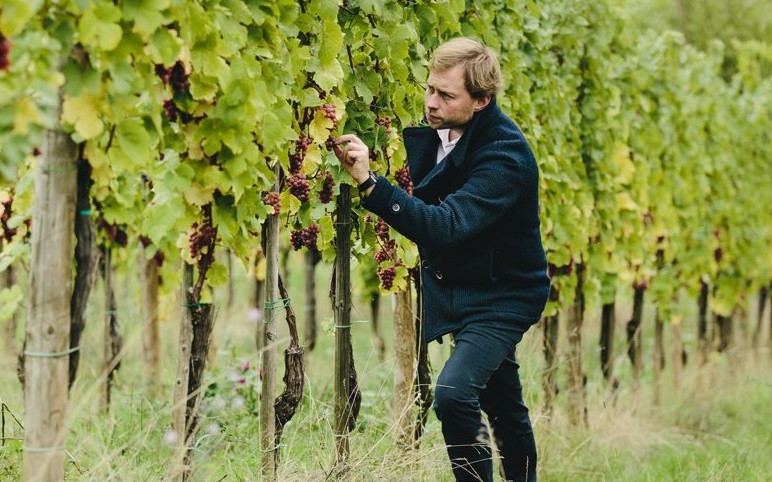
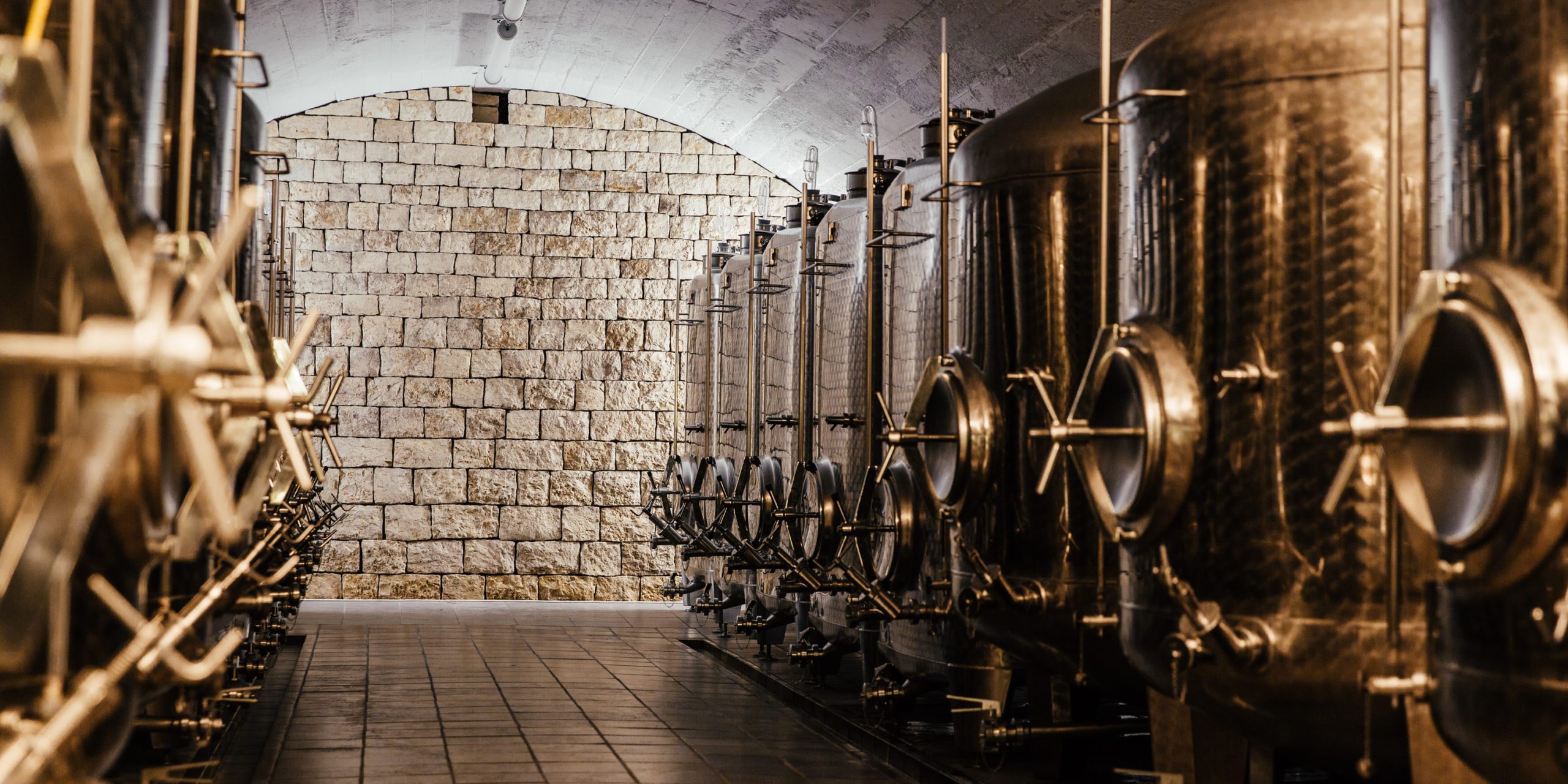
Caves St Remy-Desom
At the beginning of the 20th century, the Desom family started with the wholesale of wine. However, the family soon decided to make their own wines from the Luxembourg vineyards and founded their own wine merchant company. In 1925, the St Remy cellars were set up in Remich in a magnificent 19th century building, which was for a time the former spinning mill of the national poet Edmond de la Fontaine.
Albert and Georges Desom, managing partners, and Albert’s son, Marc, are currently in charge of the company’s activities and affairs. Marc, the estate’s oenologist, pays particular attention to the creation of the vineyard, supported by precise manual work and modern infrastructure and techniques.
Today, the vineyard covers more than 12 hectares spread over the most famous slopes of the Luxembourg Moselle. As part of the expansion of its activities, it also vinifies the grapes of some forty independent Moselle winegrowers
The Caves St Remy-Desom have 2 categories of wines:
- Domaine Desom
- Cave Desom
The wines of the Domaine Desom range are of an exceptional quality guaranteed by limited yields favoring an optimal maturity of the grapes and giving more intensity to the aromas of the wine. Moreover, on the terroirs of this range is practiced a sustainable and reasoned viticulture in the respect of nature.
The vineyards of Domaine Desom are:Remich Primerberg, Remich Hopertsbour andMaateberg, Wellenstein Foulschette, Bech-Kleinmacher Enschberg, Stadtbredimus Dieffert as well as Wormeldange WousseltandKoeppchen.
The CAVES DESOM range consists of quality wines made with grapes from our own parcels as well as those provided by independent winemakers
These wines are sourced from well-known named vineyards includingSchengen Markusberg, Wintrange Felsberg, Wintrange Hommelsberg, Schwebsange Kolteschberg, Wellenstein Kurschels, Bech-Kleinmacher Naumberg, Bech-Kleinmacher Kurschels, Remich Primerberg, Stadtbredimus Dieffert ainsi que Wormeldange Elterberg.
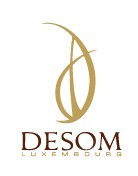
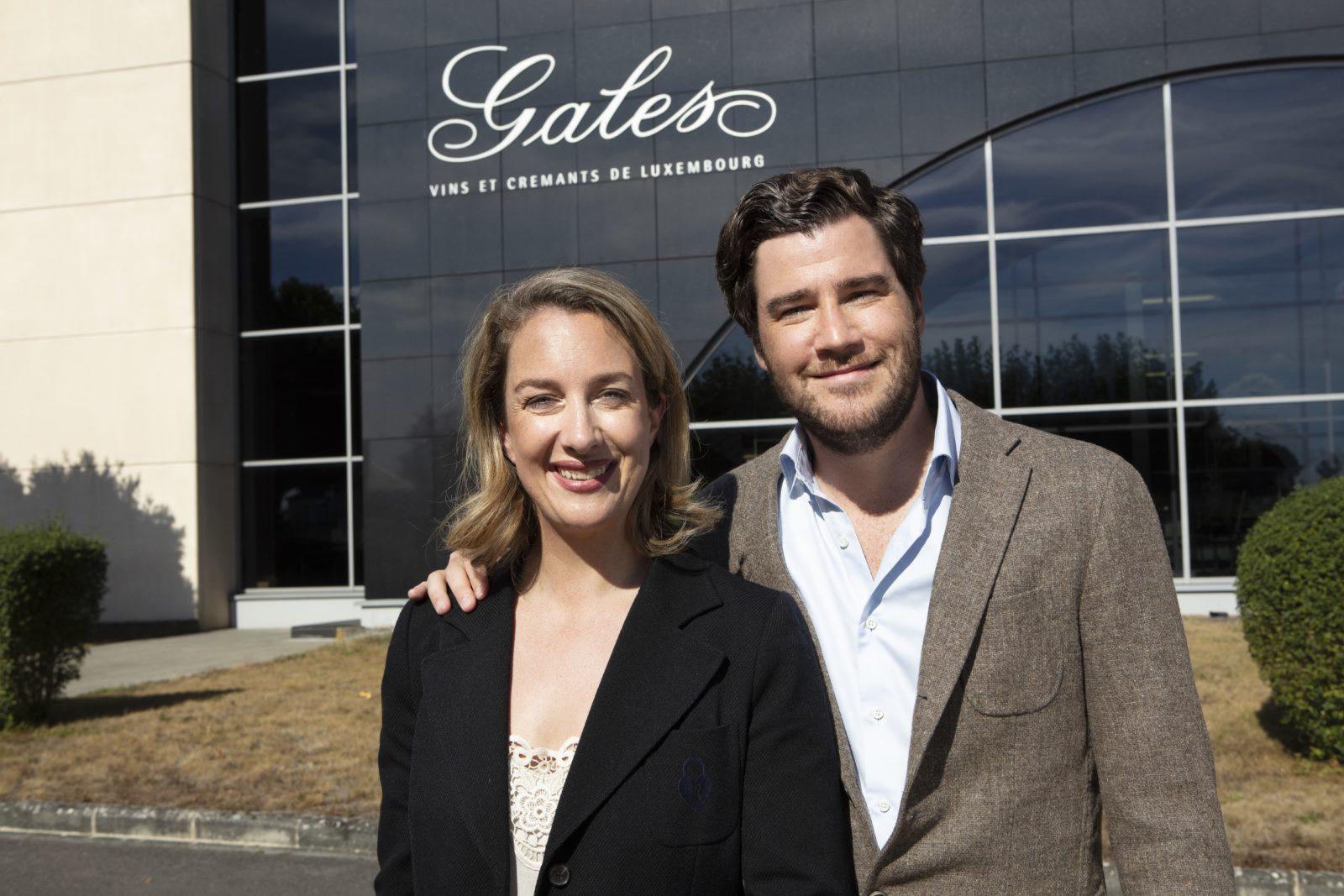
The House of Gales
The House was founded in 1916 by Nicolas Gales in Bech-Kleinmacher on the banks of the Moselle. Since then, 4 generations have followed one another to ensure the family tradition. Over the years and the decisions specific to each era, there have always been 2 generations passing on knowledge and skills. The last is represented by Isabelle Gales who joined the family adventure in 2011 and by her brother, Georges Gales who joined it in 2016.
The crémants are produced using the traditional method and are part of the top of the range in their category. Founding member of the Domaine & Tradition association, their wine philosophy is based on respect for the soil, the vines and their grapes.
The terroir wines come exclusively from the best hillsides, bordering the Luxembourg Moselle, with a south, southwest exposure around the town of Remich.
The St Martin cellars
Thanks to the enhancement and recognition of unique terroirs and strong values, Caves St Martin is reaching its next century with passion and authenticity. They were founded in 1919 after the First World War by Eugène Koch, Jean Faber, Eugène Knepper, J.P. Hartmann, Pierre Wurth, Jean Beissel and Mathias Ley.
Downstream from Remich, they recognized the immense potential of the limestone massif which today has almost 1 km long underground galleries that can be visited.
In 1984, the St Martin estate in Remich was bought by the
Maison Gales
in order to perpetuate the family traditions in a perennial way.


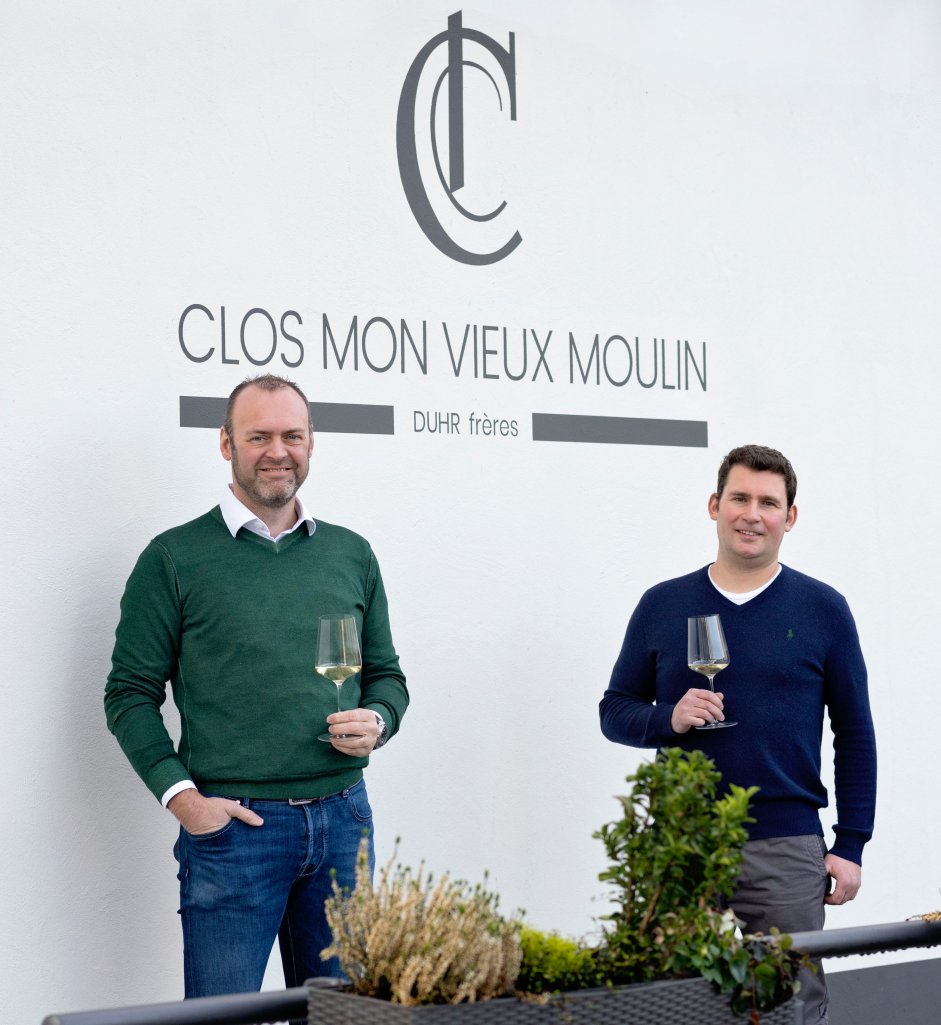
The Domaine Clos Mon Vieux Moulin
The estate is located in the charming village of Ahn, on the banks of the Moselle. The ancestors of the Duhr family had acquired in 1689, a wheat mill with its vast property, located at the foot of the Palmberg. At the beginning of the 1900s, the mill stopped definitively to devote itself solely to the wine industry. Today the 11th generation is at the helm with Luc and Franck Duhr.
Curiosity and passion were transmitted along with knowledge and the demand for quality. In 1988, they joined the Domaine & Tradition association as a founding member, promoting the quality of wines through low yields and manual selections while taking care of the environment and the terroir.
Thanks to the freshness of their authentic vaulted cellars dug into the hill, they grow their wines in peace. On 14 hectares, they cultivate 8 different grape varieties.
The style of the wines combines balance, harmony and character. The young wines have a subtle freshness, the wines of guard acquire a sumptuous complexity. Everything is done to respect the land, the vines and the environment.
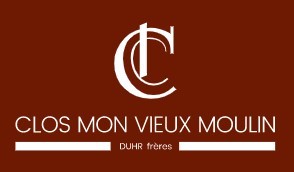
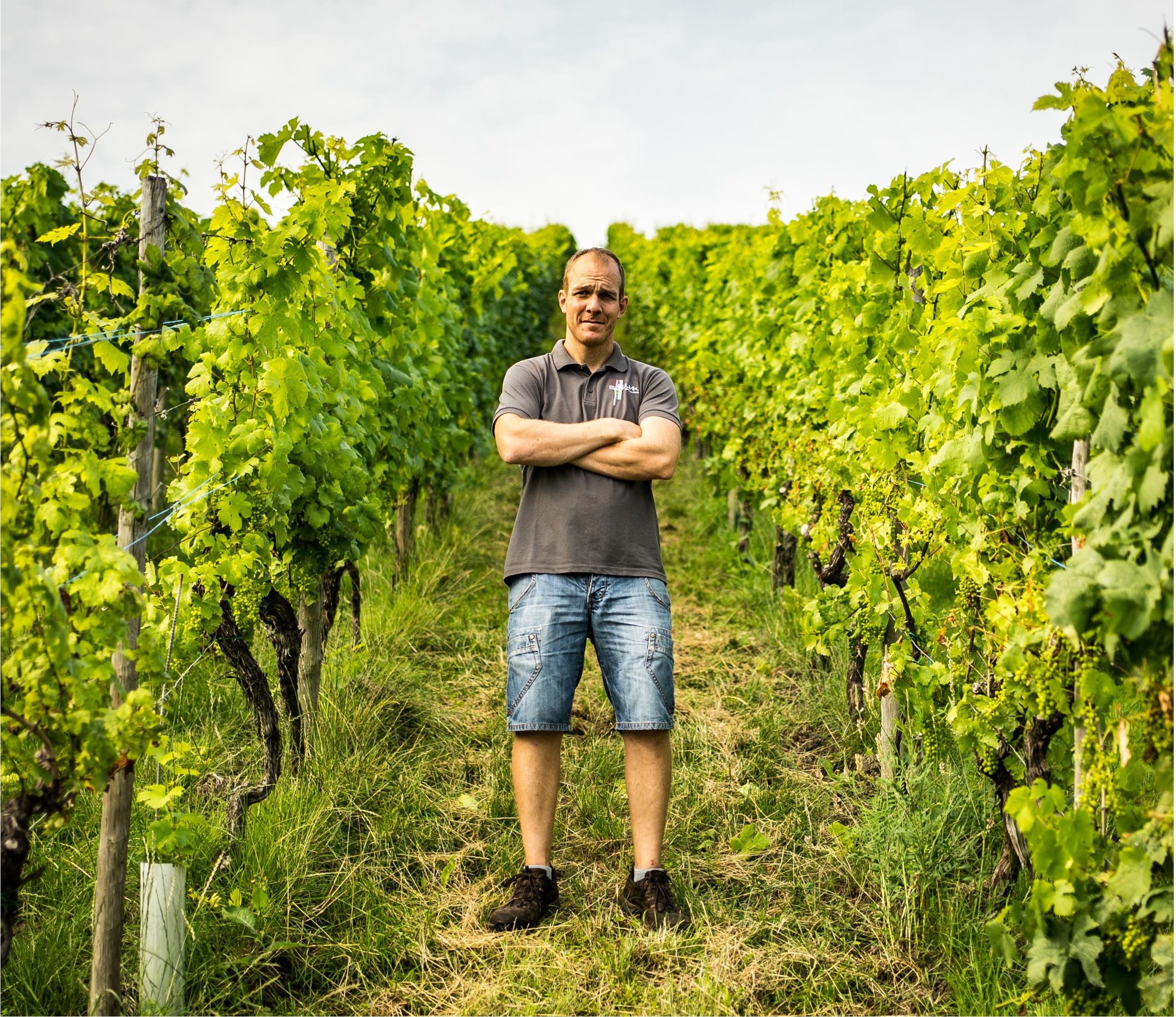
The Schlink Estate
SCHLINK wine estate is located on the Luxembourg Moselle in the picturesque village of Machtum, near Grevenmacher.
It is a century-old estate that began in 1911. The first cellars were built by Jean-Pierre Hoffeld. In 1952, Jean and Anne Schlink-Hoffeld took over the estate. In 1996, they introduced pinot noir to diversify their production. In 2007, the estate was one of the founding members of the “charta Luxembourg”, another charter wine. Finally, in 2020, Jean-Marc Schlink took over the estate.
The idea of sustainable viticulture is an integral part of the estate’s philosophy and their wines are a testament to this commitment to quality by being gentle on the land and the environment.
Currently the Schlink estate comprises 12.5 ha of vineyards. Their vineyards are located in Machtum and Wormeldange and benefit from a very favorable south-east exposure to the sun on terroirs of shell limestone.
The well-known places in Machtum are called Gëllebour, Ongkaf and Widdem, in Wormeldange they are Köppchen and Heiligenhäuschen.

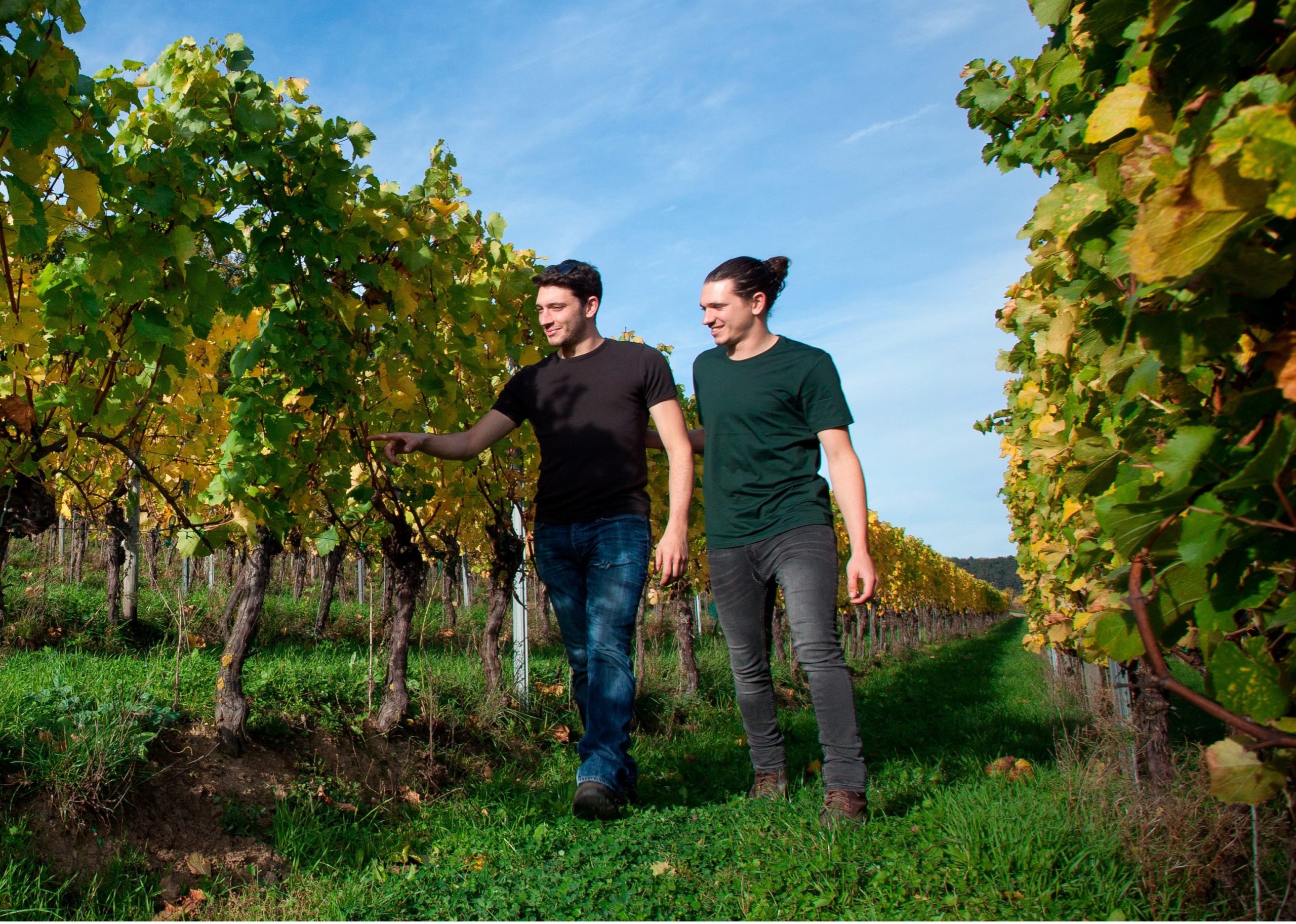
The Schmit-Fohl House
Established on the banks of the Moselle, in the heart of the village of Ahn, the Schmit-Fohl house was founded in the 18th century.
When Armand and Patrizia Schmit took over the reins of the estate in 1985, they wanted to bring their vision and their personality to what previous generations had built. Innovation is not an end in itself. It is more a question of experimenting, of following an intuition, in the light of acquired knowledge, of terroirs and climates, without ever conceding anything to the authenticity which characterizes the wines of the domain.
In 2016, their eldest son Nicolas started to take over, always accompanied by his parents. In 2019 his brother Mathieu followed him.
Since 2017 the house cultivates all its vineyards in organic viticulture. They have a deep respect for nature, soils and vines which is felt in their wines with complex aromas and typical of the terroirs that belong to them in different places like Ahn (Goellebourg, Vogelsang), Wormeldange (Koeppchen, Elterberg, Wäibour, Wousselt) or Machtum (Ongkaf).

